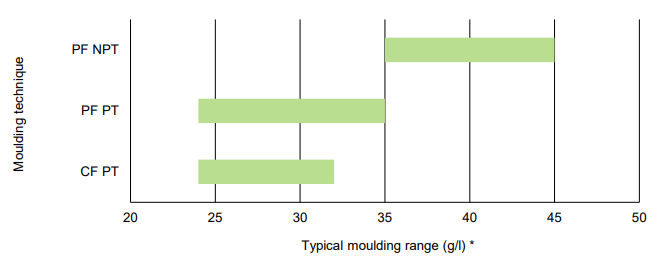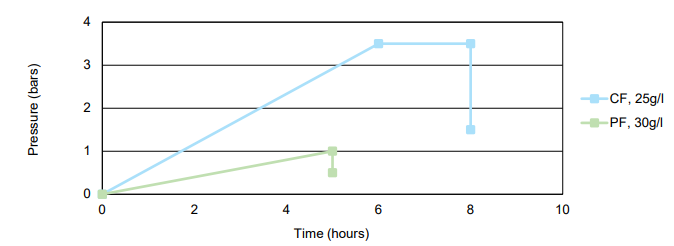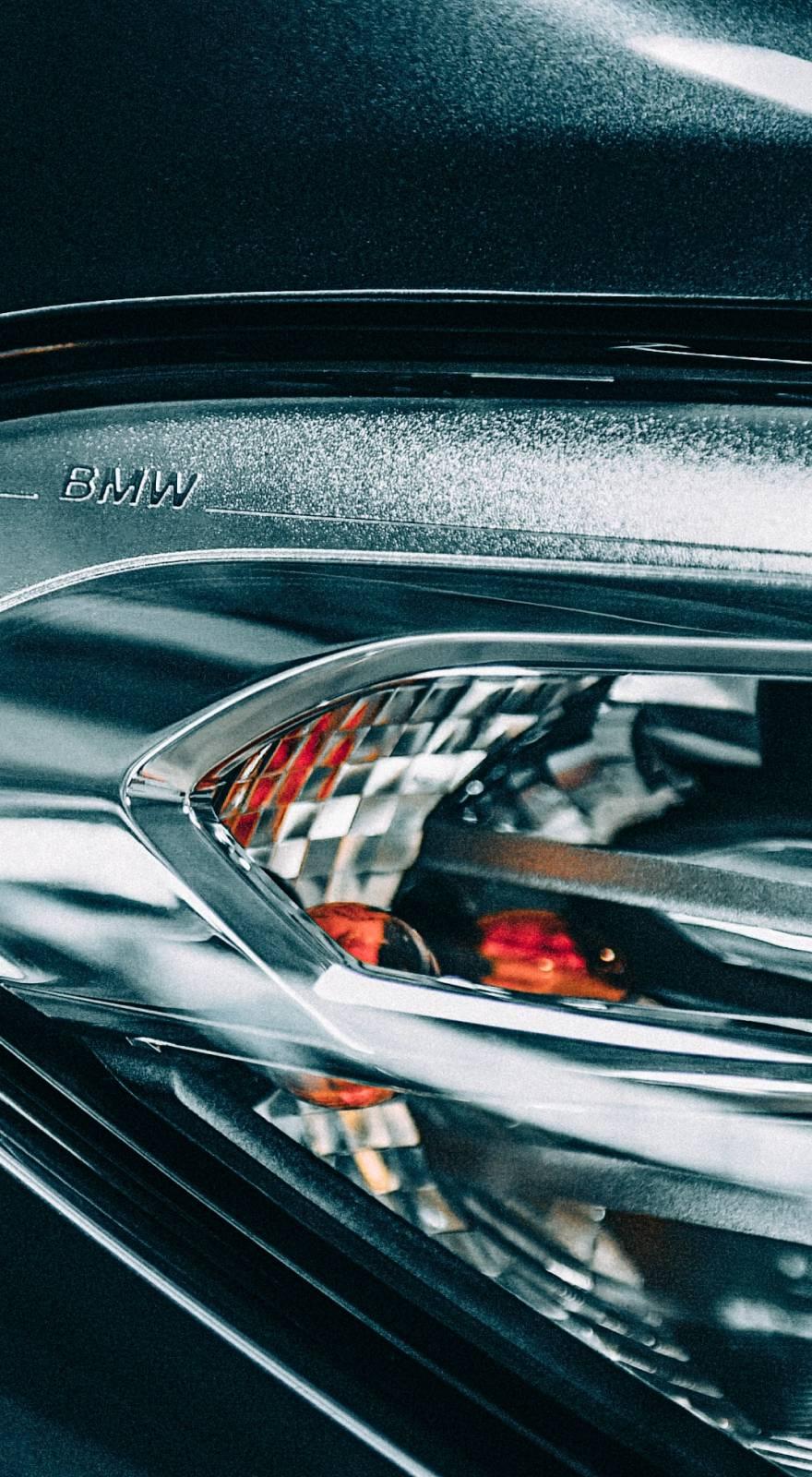Knowde Enhanced TDS
Identification & Functionality
- Additives Included
- Chemical Family
- Core Type
- Polymer Name
- Composite Materials Functions
- Technologies
- Product Families
Features & Benefits
- Labeling Claims
- Materials Features
Applications & Uses
- Applications
- Plastics & Elastomers End Uses
Properties
- Physical Form
- Typical Properties
| Value | Units | Test Method / Conditions | |
| Weight | 1.2 | mg | — |
| Size | 3-5 | mm | — |
| Bulk Density | 20.5-23.5 | g/l | — |
Regulatory & Compliance
- Certifications & Compliance
- Food Approved
Yes
Technical Details & Test Data
- Physical Properties
Test method 30g/l 40g/l Compressive strength
25% strain (kPa)
50% strain (kPa)
75% strain (kPa)ISO 844
5 mm/min150
220
460210
300
600Tensile strength (kPa)
Tensile elongation (%)ISO 1798 430
21550
19Compression set
25% strain – 22 hours – 23°C (%)ISO 1856 (Method C)
Stabilizing 24h12.0 11.5 Burn rate (mm/min) ISO 3795
12.5mm thick80 60 - Moulding
ARPRO 3122 can be molded using Crack Fill (CF) and Pressure Fill (PF):
Crack fill: preferably applied to Pre-Treated (PT) ARPRO.
Pressure fill: applied to either Pre-Treated (PT) or Non-Pre-Treated (NPT) ARPRO.
- Pre-treatment
Recommended pre-treatment cycle with pressure tank environment and incoming compressed air both at 23°C:
Crack fill: 6 hours up to 3.5 bar, hold for 2 hours at 3.5 bar, decrease and maintain at 1.5 bar throughout production.
Pressure fill: 5 hours up to 1 bar, decrease and maintain at 0.5 bar throughout production.
Pre-treatment cycles can be adapted according to molding process, density and part geometry:
If internal cell pressure is too high, this may lead to fusion issues. In this case, decrease time, pressure or temperature to improve fusion.
Increase time, pressure or temperature to reduce molded density and improve aspect.
Operating the pressure tank above ambient temperature, up to a maximum of 50°C, significantly shortens pre-treatment time.- Post-treatment
For molded densities below 50g/l and depending on the parts dimensions, post-treatment at a temperature of 80°C is recommended for 3 to 8 hours. This helps to remove water content, as well as ensuring dimensional stability and a geometric shape.
- Shrinkage
Typical values range from 2% to 2.6%. The higher the molded density, typically the lower the shrinkage.
Packaging & Availability
- Packaging Type
- Packaging
Bulk/Bag
Storage & Handling
- Storage
A storage temperature above 15°C is strongly recommended.
Indoor storage strongly recommended.
If stored outdoors, it is strongly recommended to keep the material indoors for 24 hours before molding.

